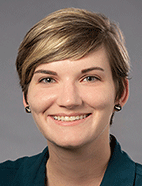As part of ENAR's education initiative, our webinars promote continuing education for professional and student statisticians by disseminating cutting-edge knowledge to our membership. An ENAR webinar (or "WebENAR") can strengthen your background in methodology and software, provide an opportunity to learn about a topic outside of your primary area of specialization, or deepen your understanding of an area in which you already work. We invite you to participate and benefit from the expertise of some of North America's leading statisticians and biostatisticians.
The Webinar Committee of the ENAR Regional Advisory Board (RAB) is coordinating this ongoing series of 1- to 2-hour webinars given by renowned experts. Registration is free for current ENAR members. The webinars are planned to be broadly available and we encourage groups at your institution or workplace to participate together. WebENARs provide excellent learning opportunities for students and professionals alike.
Registration fees are waived for ENAR members, however, advance registration is still required for all attendees. Please email enar@enar.org if you have any questions.
Sequential Causal Inference in Experimental or Observational Settings
Friday, October 3, 2025
12-1 pm EDT
Speaker:
Aditya Ramdas, Carnegie Mellon University
Abstract:
I will discuss three modern statistical topics around experimentation and deployment of AI models at scale: (a) how to track the risk of a deployed model and detect harmful distribution shifts, (b) how to sequentially estimate average treatment effects in A/B tests or observational studies, (c) post-selection inference when performing doubly-sequential experimentation. Solutions will be enabled by the development of new methodology, like asymptotic analogs of Robbins' confidence sequences, online analogs of the Benjamini-Hochberg procedure, and sequentially-adaptive doubly robust estimators. These methods in turn require the development of new foundational statistical concepts like time-uniform central limit theory, and e-values.
Speaker Bio:

Aaditya Ramdas is an Associate Professor at Carnegie Mellon University in the Departments of Statistics and Machine Learning. His work has been recognized by the Presidential Early Career Award (PECASE), the highest distinction bestowed by the US government to young scientists, a Kavli fellowship from the NAS, a Sloan fellowship in Mathematics, a CAREER award from the NSF, the inaugural COPSS Emerging Leader Award, the Bernoulli new researcher award and the IMS Peter Hall Early Career Prize. He was recently elected Fellow of the IMS and was awarded Statistician of the Year by the ASA's Pittsburgh Chapter.
Register for WebENAR on 10/3/25.
Career Catalyst | Graduate Admissions Demystified
Monday, October 20, 2025
2-3 PM
Panelists:
Jacob Oleson, University of Iowa
Andrea Lane, Duke University
Sebastian Zollner, University of Michigan
Abstract:
Join us for a webinar designed to demystify the graduate admissions process in biostatistics, statistics, and related quantitative departments. A panel of faculty from different departments will share their perspectives from the admissions committee side from what they look for and how the admission process works. Whether you're a prospective applicant preparing your materials or a faculty member looking to better support students through applications, letters of recommendation, and strategic guidance, this session offers valuable takeaways to help all parties during admissions season.
Speaker Bios:

Dr. Jacob Oleson is the director of the Statistics/Analytics Core of the Institute for Public Health Practice, Research and Policy (IPHPRP); Director of Graduate Studies and a professor in the Department of Biostatistics at the University of Iowa, secondary professor in the Department of Otolaryngology, and a member of the Holden Comprehensive Cancer Center’s Cancer Epidemiology and Population Science Core. He has been Director of Graduate Studies for the department for the past ten years, has chaired the admissions committee for the past thirteen years, and been a member of the admissions committee for the past twenty years. As a biostatistician, he has helped to author over 180 peer-reviewed research papers and been involved in over 50 funded research grants and has served on the dissertation committee for 48 PhD students across 15 different departments.

Andrea Lane is an Assistant Professor of the Practice in the Duke Social Science Research Institute (SSRI) with a secondary appointment in the Department of Statistical Sciences. Her research focuses on the health applications of data science, with a particular interest in electronic health records and community-engaged work.

Sebastian Zollner is a Professor of Biostatistics. He also holds an appointment in the Department of Psychiatry. Dr. Zollner joined the University of Michigan after a postdoctoral fellowship in the Department of Human Genetics at the University of Chicago. His research effort is divided between generating new methods in statistical genetics and analyzing data. The general thrust of his work is problems from human genetics, evolutionary biology and statistical population biology.
Register for WebENAR on 10/20/25.
ENAR Roundtable Day 2025
Wednesday, November 5, 2025
10-11:30 am EST
*Special online Roundtable Day. WebENAR fees do not apply to this event. Please see online Roundtable fees below.*
Online Roundtable:
Member: $25 | Non-Member: $45
ENAR is taking their popular Spring Meeting Roundtables on the road…well, at least onto Zoom! Check out the very first Roundtable Day on November 5, 2025, at 10 am. Roundtables are conversations centered around a predetermined topic and led by a discussion leader. ENAR has invited some top talent within the biostatistics community to serve as discussion leaders on topics that are timely in today’s world. We invite you to register for the small group discussion topic you find most intriguing. Open to all, but members receive a discounted rate. Space is limited within each topic, so sign up early!
RT1 | A Statisticians Role in the Generative AI Research
Artificial intelligence (AI) has started to revolutionize many different fields including natural language processing, image generation, and the biomedical sciences. As the influence of these technologies continues to grow, the need for robust statistical techniques has never been more important. In this roundtable, we will explore the real opportunities for statisticians and biostatisticians in generative AI research. Here, we will touch on a variety of topics including model evaluation, data augmentation, uncertainty quantification, and interpretable AI. We will also discuss some of skillsets that are useful to make a real impact in this research space, whether it be in academia, industry, or some other sector.

Discussion Leader: Lorin Crawford
Lorin Crawford is a Principal Researcher at Microsoft Research. His research program focuses on developing interpretable machine learning and AI algorithms to study how genetic effects and gene-by-environmental interactions influence complex traits and disease progression. As part of this work, he co-leads Project Ex Vivo, a collaborative effort between Microsoft and the Broad Institute of MIT and Harvard focused on defining, engineering, and targeting cell states in cancer. Dr. Crawford has been featured on Forbes 30 Under 30 and The Root 100 Most Influential African Americans list. He has also received an Alfred P. Sloan Research Fellowship, a Packard Foundation Fellowship for Science and Engineering, a COPSS Emerging Leader Award, and the Annie T. Randall Innovator Award from the Biometrics Section of the ASA.
Dr. Crawford earned his PhD from the Department of Statistical Science at Duke University, and he received his Bachelor of Science degree in Mathematics from Clark Atlanta University.
RT2 | The Future of Statistics in Response to Global and Local Infectious Disease Outbreaks
The past decade has demonstrated that localized infectious disease outbreaks can rapidly evolve into global health-care crises. Outbreaks of the viruses responsible for Ebola, COVID-19, and mpox provide examples that illustrate the significant contributions of statisticians. From supporting the analysis of epidemiological trends to initiating clinical trials that facilitate expedited approvals of medical countermeasures, statisticians play a crucial role. This discussion will address challenges encountered in previous outbreaks and focus on how statistical methodologies and practitioners can enhance future response efforts.

Discussion Leader: Lori Dodd
Dr. Lori Dodd is a biostatistician and chief of the Clinical Trials Research and Statistics Branch within the Office of Biostatistics, Division of Clinical Research, National Institute of Allergy and Infectious Diseases (NIAID). Lori also leads the Pamoja Tulinde Maisha (PALM; "Together, Save Lives") infectious disease research partnership between NIAID and the Democratic Republic of Congo’s National Institute of Biomedical Research. She’s contributed to the success of multiple randomized controlled trials during infectious disease outbreaks, including the Ebola virus disease therapeutics (PREVAIL II and PALM001), COVID-19 therapeutics (Adaptive COVID-19 Treatment Trial (ACTT) 1-4), and mpox therapeutics (PALM007). Prior to joining NIAID, she worked as a mathematical statistician at the National Cancer Institute. She earned her PhD from the Department of Biostatistics at the University of Washington.
RT3 | Institutional Practices for Trustworthy AI
The use of AI in real-world healthcare settings introduces both exciting possibilities and considerable risks. Institutions are actively exploring and deploying a wide variety of AI governance approaches to address these challenges. In this discussion, we will consider key concerns related to the use of AI and practical approaches such as AI use policies, impact assessments, review boards, certifications, and red teaming. Please come ready to share your experiences and ideas.

Discussion Leader: Emily Hadley
Emily Hadley is a Security Researcher on the Microsoft AI Red Team. In this role, she helps assess AI systems for a wide variety of potential risks. Prior to her current role, Ms. Hadley was a research data scientist at RTI International where she led technical projects related to Long COVID, postsecondary education, criminal justice, and the responsible use of AI. She received a BS in Statistical Sciences with a second major in Public Policy Studies from Duke University and a MS in Analytics from NC State University.
RT4 | Tips for Biostatisticians Collaborating with Non-Biostatistician Medical Researchers
In this talk I contrast consultation with collaboration and discuss various ways to make collaborations most effective. Some key components of effective collaboration are mutual respect, proper division of labor, and basing choices on statistical principles. Special emphasis is given to the importance of biostatisticians being heavily involved in the choice and construction of outcome variables.

Discussion Leader: Frank Harell
Dr. Frank Harrell received his PhD in Biostatistics from the University of North Carolina in 1979 and has held numerous editorial and advisory roles, including serving as Expert Biostatistics Advisor to the FDA CDER and as a long-time consultant to the FDA. He directed the SUPPORT Statistical Center for nine years, focusing on end-of-life care, and has been recognized as a Fellow of the American Statistical Association and recipient of its WJ Dixon Award for Excellence in Statistical Consulting. Dr. Harrell has held distinguished lectureships and visiting scientist appointments internationally, and has contributed extensively to statistical education, founding the Division of Biostatistics and Epidemiology at the University of Virginia and serving as the founding chair of the Department of Biostatistics at Vanderbilt University.
With nearly 300 peer-reviewed publications, Dr. Harrell’s career centers on developing accurate prognostic and diagnostic models, advancing methods for reliable statistical modeling, predictive accuracy, and model validation. His work spans health services research, clinical trials, and pharmaceutical safety, with significant contributions to the use of spline functions, bootstrap validation, and Bayesian trial design. Dr. Harrell has collaborated widely in academia and industry, designing statistical aspects of numerous studies and serving on Data and Safety Monitoring Boards. He is also known for his influential book, "Regression Modeling Strategies," and for mentoring hundreds of physicians and researchers in biostatistics and research methodology.
RT5 | Taking the Stand: What Statisticians Should Know About Being an Expert Witness
Statisticians are increasingly asked to bring their expertise into the courtroom, where data can influence verdicts, policy, and even questions of life and death. What is it really like to take the stand as an expert witness? In this roundtable, I will share my experience testifying in a North Carolina death penalty trial and reflect on the unique challenges of explaining complex statistical reasoning to judges and juries. We will also explore the broader role statisticians can play in forensic science—from ballistics and latent prints to DNA transfer. This session is designed as an open conversation: I’ll begin with a brief account of my own experience, and then we’ll discuss practical, ethical, and professional questions about serving as an expert witness. Whether you are simply curious, considering this path, or already seasoned in the courtroom, bring your questions and insights for what promises to be a lively and thought-provoking discussion.

Discussion Leader: Nandita Mitra
Nandita Mitra, PhD, is Professor of Biostatistics at the University of Pennsylvania, where she co-directs the Center for Causal Inference. Her research spans causal inference methods, health policy evaluation, and applications in public health and health economics. She has published more than 325 articles in leading statistical and clinical journals, serves as Editor-in-Chief of Observational Studies, and is currently President of the Society for Causal Inference.
RT6 | Title: Winner! Winner! Chicken Dinner! How to Nominate and Get Nominated
There are few things more satisfying than seeing a deserving individual get recognized for their life and work -- and sometimes that individual is you! This roundtable will discuss the ins and outs of nomination procedures with a focus on professional awards. Discussion will include how to find relevant awards, how to ask others to nominate you, how to write a strong nomination package, and how to find the courage to nominate yourself or a colleague!

Discussion Leader: Elizabeth Stuart
Elizabeth A. Stuart, Ph.D., is the Frank Hurley and Catharine Dorrier Chair and Bloomberg Professor of American Health in the Department of Biostatistics at the Johns Hopkins Bloomberg School of Public Health, with joint appointments in the Department of Mental Health and the Department of Health Policy and Management. She received her PhD in Statistics from Harvard University in 2004. Her research interests are in design and analysis approaches for estimating causal effects in experimental and non-experimental studies, including questions around the external validity of randomized trials and the internal validity of non-experimental studies, as well as methods for combining data sources to assess treatment effect heterogeneity and methods for evidence synthesis. She is a fellow of the American Statistical Association and the American Association for the Advancement of Science, received the mid-career award from the Health Policy Statistics Section of the ASA, the Gertrude Cox Award for applied statistics, Harvard University’s Myrto Lefkopoulou Award for excellence in Biostatistics, and the Society for Epidemiologic Research Marshall Joffe Epidemiologic Methods award. She currently serves on the National Academies of Sciences, Engineering, and Medicine (NASEM) Committee on National Statistics and co-chairs NASEM's Committee on Applied and Theoretical Statistics.
RT7 | Pathways to Success for Early Career Statisticians
A career in the fields of Statistics and Biostatistics can be rewarding but also a challenge to navigate early in one’s career. Some parts of the fields are changing quickly, others seem to stay the same. Departments and research groups grow and shrink, scientific (and funding!) priorities shift with new technology, new discoveries, and new approaches but also with new external priorities. In this roundtable, we will consider a range of issues related to beginning a career in Biostatistics. We will discuss the different “currencies of success” associated with careers in academic, industry, and government organizations. We will discuss communication skills, funding strategies, collaboration skills, weathering change, and opportunities to contribute to the field in multiple ways. Please feel free to bring questions (or send them to the facilitator beforehand!) to allow the discussion to address your needs as well as the general topics above.

Discussion Leader: Lance Waller
Lance A. Waller, Ph.D., is a professor and former Chair in the Department of Biostatistics and Bioinformatics, Rollins School of Public Health, Emory University, a co-chair of National Academies’ Committee on Applied and Theoretical Statistics, and a former member of the U.S. Census Scientific Advisory Committee. Dr. Waller is a Fellow of the American Statistical Association and a Fellow of the Royal Geographical Society. His research involves the development of statistical methods for geographic data including applications in environmental health, epidemiology, disease surveillance, and disease ecology. His research appears in biostatistical, statistical, environmental health, and ecology journals and in the textbook Applied Spatial Statistics for Public Health Data (2004, Wiley).
Register for Roundtable Day on 11/5/25.